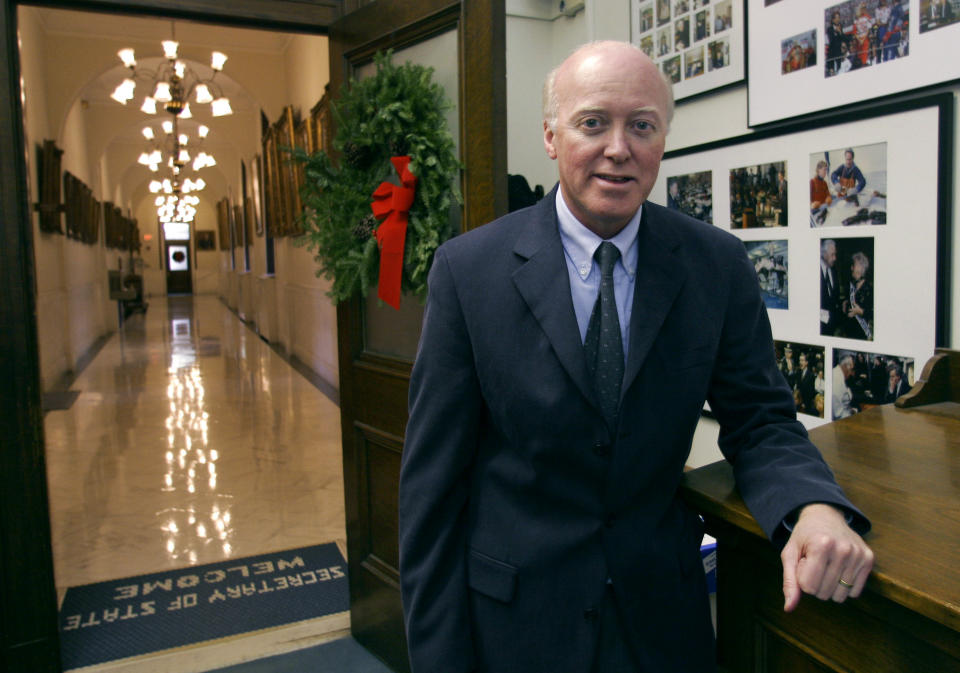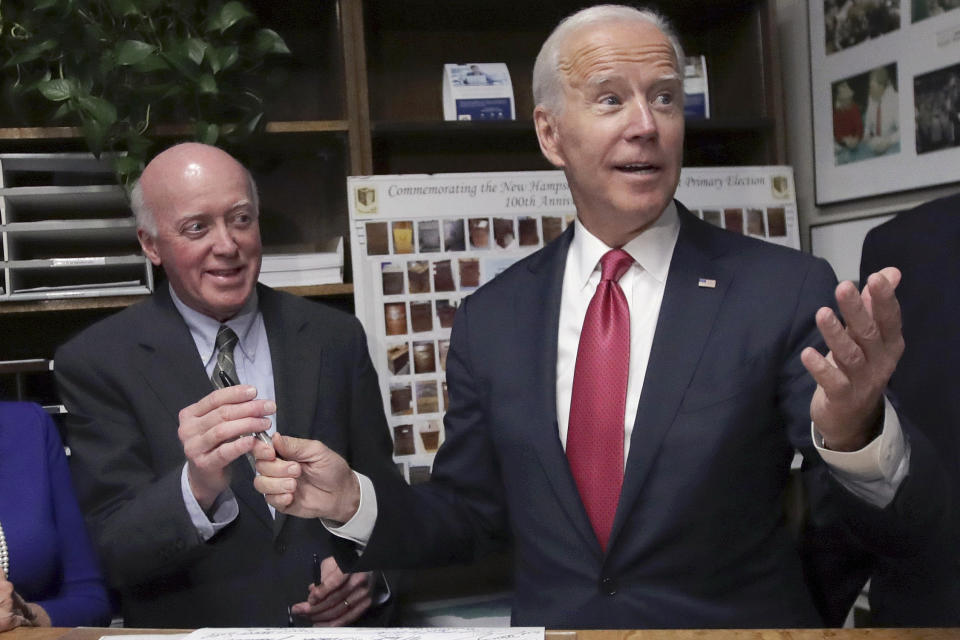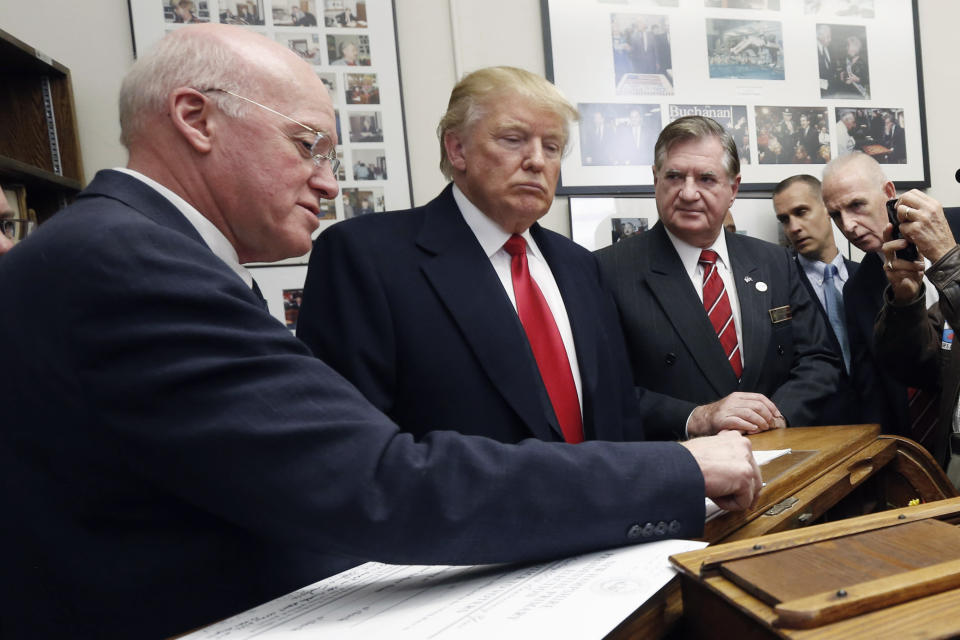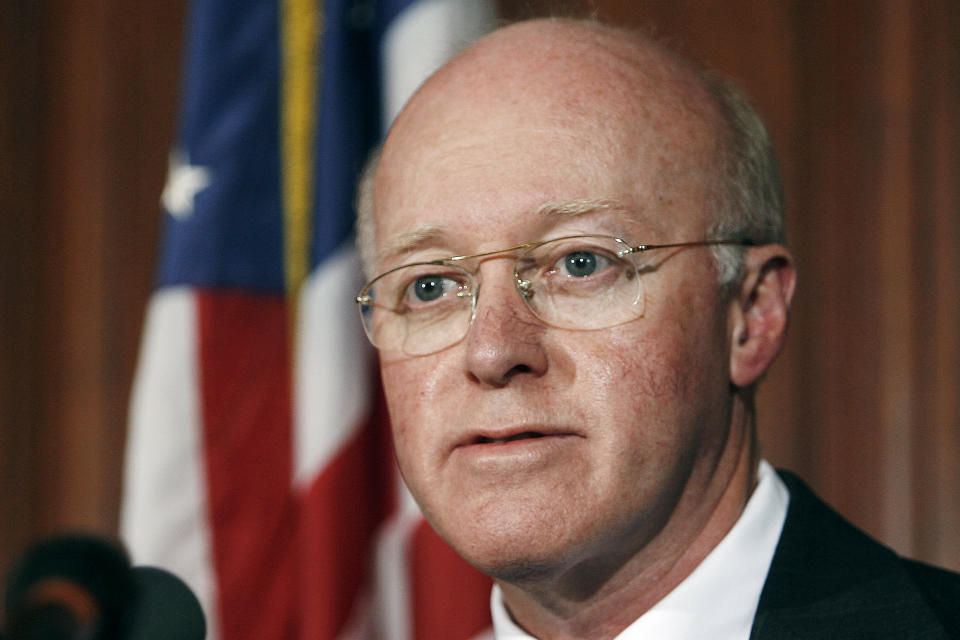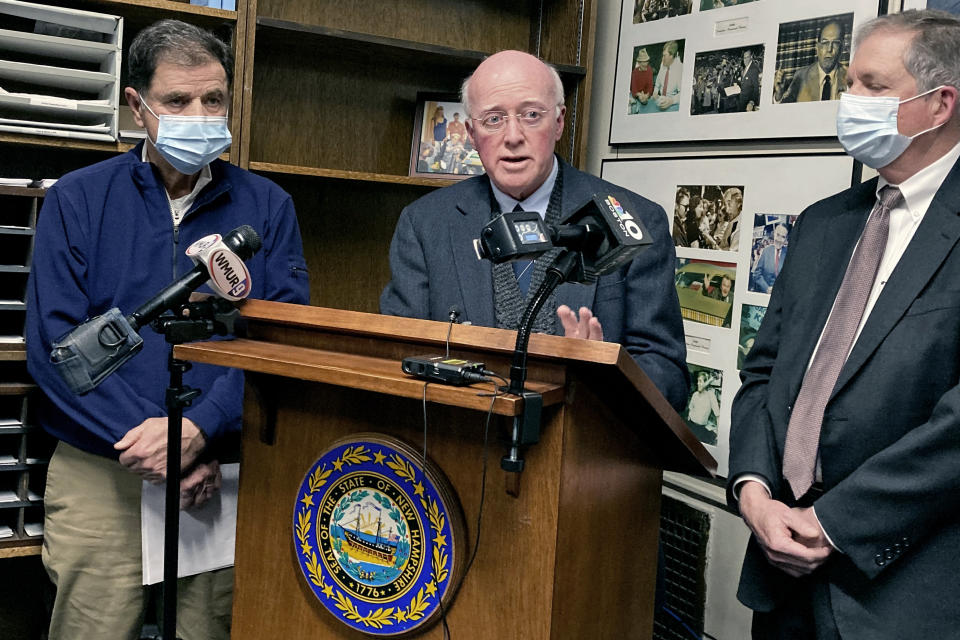New Hampshire secretary of state since 1976 to retire
CONCORD, N.H. (AP) — Bill Gardner, the nation's longest-serving secretary of state and chief protector of New Hampshire's first-in-the-nation presidential primary, said Monday he will leave office this week after a 45-year career.
Gardner, 73, was first elected by the Legislature in 1976 and re-elected to his 23rd two-year term in 2020. He said neither poor health nor politics played a role in his decision to retire, and that he was stepping down because it was a “smooth time” between election cycles.
“I can never give back the so many extraordinary experiences that New Hampshire voters and elected officials have given me over the years,” he said at a news conference at the Statehouse office where he has served with 11 governors, 17 Senate presidents and 13 House speakers.
It was a remarkable run for a man who majored in zoology and at least flirted with the idea of becoming a farmer. But seeing friends get drafted and killed in Vietnam spurred him to become an advocate for lowering the voting age to 18 and inspired him to run for the state Legislature as a Democrat in 1972.
When he ran for secretary of state four years later, the 28-year-old Gardner was such a longshot that hours before the election, he rounded a corner at the Statehouse and came upon a television reporter interviewing his opponent as if the other man had already won. But he went on to win that year and every two years since, facing little or no competition aside from 2018, when he defeated former gubernatorial candidate Colin Van Ostern by just four votes.
“The first time I ran, and people asked, ’What is the most important thing you’re going to do? I said: maintain free, fair and equal elections," Gardner said Monday. "Any person in this state, no matter what political beliefs they have, whatever status in life they have, they’re going to have the same opportunity to vote and run for office as anybody else would have.”
Gardner has staunchly guarded New Hampshire’s position in the presidential nominating calendar via a state law that requires the state’s primary to be held at least seven days ahead of any similar contest, and gives the secretary of state exclusive authority to set the date. That has led to multiple standoffs over the years, with Gardner waiting for the dust to settle in other states before picking a date.
“The law doesn't give you a road map. The law doesn't tell you how to do it,” he said.
Critics argue that New Hampshire is too small and too white to play such a major role in picking presidents, but Gardner and other defenders of New Hampshire insist the country — and the candidates — are well served because the primary requires close contact with voters, not just name-recognition or advertising cash.
“You could have a taxi driver from New York city filing for president at the same time the majority leader of the U.S. Senate comes in to file,” he said. “This is a wide-open opportunity for everyone to come in and have a chance. As long as we keep that, the tradition will continue.”
Gardner said after transferring power to Deputy Secretary of State David Scanlan, he will focus on writing and speaking out “to defend and promote our state and federal constitutions, conducting our elections with the checks and balances that both constitutions require.”
“For decades, Bill Gardner has fiercely protected New Hampshire’s First in the Nation presidential primary and overseen our elections that are truly a point of pride for our state — always open, fair, accessible, and accurate,” Republican Gov. Chris Sununu said in a statement. “We will miss Bill and his vast institutional knowledge of New Hampshire people, politics, and government.”
In recent years, Gardner came under fire from fellow Democrats for his participation in former President Donald Trump’s commission on voter fraud and for backing GOP legislation to tighten voter registration rules. In 2020, New Hampshire’s Feb. 11 presidential primary race was under extra scrutiny after the leadoff Iowa caucuses descended into chaos, with technical problems and results that remained muddied for days.
Then came the coronavirus pandemic, which created challenges for municipal elections and traditional Town Meetings in March, followed by the September state primary and November 2020 general election. The state temporarily expanded eligibility for absentee voting for those concerned about the pandemic, and extensive safety measures were in place at the polls. All of that influenced his decision to run again in 2020, Gardner said.
Prone to answering reporters' questions with lengthy history lessons, Gardner said one of his proudest moments came just a few months into his tenure when he noticed the sound of rustling papers in some metal tubes workers were removing from his office's ceiling. It turned out someone had stashed New Hampshire's copy of the Declaration of Independence, the Bill of Rights and the 11th Amendment.
“The history has always been embedded in me,” he said.
As recently as Thursday, he was on his way out of the Statehouse when he bumped into North Carolina's House Speaker Tim Moore outside and ended up giving him an impromptu three-hour tour that extended well into the evening. He gave his guests two packages of peanut butter crackers but drove home at 8:30 p.m. having skipped dinner.
“But I was thinking, ‘That’s what I love here. I love telling the New Hampshire story. I love talking about our history,'" he said.
“We all have lives with incredible adventures whether at the time we realize it or not,” Gardner said. “I do realize and will be forever grateful for the adventure of serving the people of our state and our Statehouse.”
___
Associated Press Writer Kathy McCormack contributed to this report.
